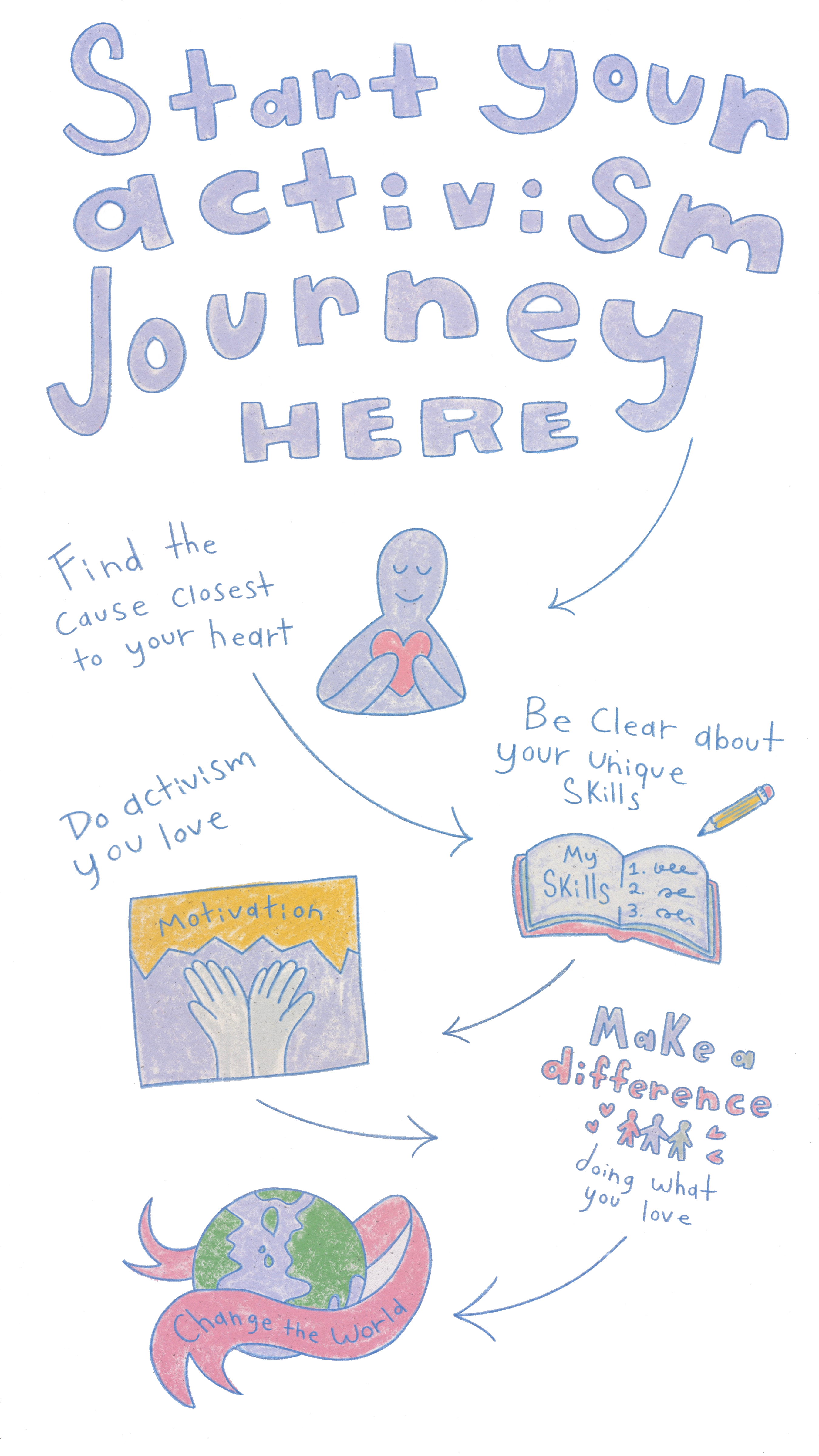- Happy Activism: A Sustainable Way to Create Change Without Burnout - February 9, 2026
- The Meaning of Critical Thinking: A Key Skill for Navigating Today’s Information Landscape - November 3, 2025
- Grandparents Can Develop Activist Grandchildren - September 29, 2025
Last Updated on January 17, 2025
In my previous post, What is a Calling and Why Do I Need One? I discussed callings and why they are essential to your life. A calling is a purpose in life that permeates all that you do. Having a calling is related to many good things, such as life satisfaction, health, and personal growth.
In a follow-up post, How to Find The Calling in Your Life, I reviewed how you can find a calling, whether from a summons, a purposeful life, or a sense of duty.
In this post, I link activism and callings together to help you find the source of your activism calling.
Activism as a Calling
If a calling comes from a summons, a purposeful life, or a sense of duty, how do you find your activism calling?
A Summons

Having a calling makes the first part of the activism path easy.
A Purposeful Life
If your passion is living a life that is ethical, moral, and purposeful, you may come to your calling as a way to live out your values. Your ethics may lead you to, for example, try to make the world a better place for people with less privilege than you.
A Sense of Duty
A passion may be thrust upon you by your life circumstances. If you see a change that needs to happen, your calling will come from that feeling of obligation to make the world a better place.
[Are you ready to live your ideal life? Here’s how.]
Does Class Influence Callings?
Perhaps it is more complicated than the source of a calling, though. There may be a difference in the way people find their calling, depending on their class origins. In Research on Work as a Calling and How to Make it Matter, Bunderson and Thompson interviewed activists and discovered their stories tended to vary depending on their class.
Middle-Class Activists
Middle-class activists tended to see activism as a career, having come to it in a way other than by personal struggle. Unlike other types of activists, their path to activism came through adding social change as a new role. Here is an excerpt from their interview of a middle-class activist:
“I just feel like it has to be something that really makes me feel like I’m accomplishing something beyond a paycheck. The best minds in my generation are in insurance. And what are they doing? They’re feeding the system, which is absolutely horrible. I can’t work somewhere where I would feel like I’m part of the problem.”
Working-Class Activists
In their interviews, working-class activists tended to see activism with a sense of helping others in the same situation reach a better life. Working-class community organizer Karen, who moved back to her neighborhood to make a difference there, answered, “It’s your passion; it’s your ministry.”
Lower Income Activists
For lower-income activists, there is little distinction between activism and other roles they play. They see activism as a way of life, most having struggled during their lifetime.
“For Carmen, another low-income activist, her activism stems not from her training in activism, as is the case for several middle-class activists with whom she has worked, or from her need to reconnect to a working-class community that she has left behind, as is the case for working-class activists. Instead, it flows from her identification with other low-income women in her community.
What I love is sitting down with a woman who has never once written a letter in her life, someone who has a third grade or a fifth grade education, a woman like I am who has been oppressed all her life, come out that shell and learn and say, “I want change. I’m going to stop being the victim . . . like I did.””
I’m interested to see how more research informs the source of our calling.
After the Calling
Whether you have a calling or had to look for one, the other steps of the activism path are the same. Now match your skills, knowledge, and motivation to your activism work.
Use the activism method that keeps you motivated and lights your fire. For example, lobbying is an essential activism method, but if that is not your cup of tea, look for creative ways to use your talents by tapping into your passions
Make sure the change you are trying to make is effective. For example, you could make more impact by focusing on a method receiving less attention.
Finally, stay motivated. Living your calling will help you do that.
[Learn more about how to find your passion and change the world.]
READ NEXT
Annual Review of Organizational Psychology and Organizational Behavior 2019 6:1, 421-443
Callings: The Purpose and Passion of Work is a lovely collection of stories.
What Are the Five Most Important Roles in Your Life?
How to Create Your Bucket List




Pingback: At the Intersection of Teens and Gun Control • Emma Gonzalez
Pingback: How To Create A Vision Of A Joyful Life